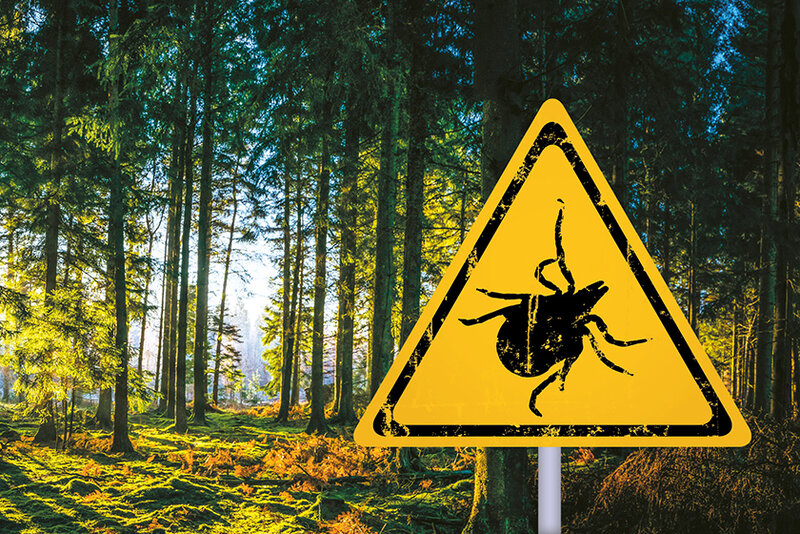Spring awakening of the ticks: How you can protect yourself now
Neurology and neurophysiology(20.03.2025) The first warm days not only mark the start of the outdoor season for humans, but also for ticks. If you know the risks and take precautions in good time, you can protect yourself effectively, says an expert.
As soon as temperatures permanently rise above 7 to 10°C, ticks awaken from their winter torpor. Contrary to a widespread myth, they do not drop from trees, but wait in the undergrowth and on grasses until a potential host wanders past. "Ticks are not only active in summer - they can bite even on mild winter days," explains Prof. Dr. Sebastian Rauer, senior physician at the Department of Neurology and Neurophysiology at the Freiburg University Medical Center. The risk is particularly high in southern Germany, but also in other regions with high tick densities.
Lyme disease and TBE: these diseases are a threat
Ticks can transmit Lyme disease and tick-borne encephalitis (TBE), among others. While Lyme disease is caused by bacteria and can be treated with antibiotics, there is no specific treatment for TBE - only a vaccination can help as a protective measure. "Vaccination should be taken seriously, especially in TBE risk areas. A tick bite can have fatal consequences, especially for older people or people with a weakened immune system," warns Rauer. Everyone can do a lot themselves to avoid tick bites - awareness of the danger is the first step, emphasizes the expert. Prevention is therefore the best protection: a TBE vaccination, protective clothing and a thorough check after spending time outdoors are the most successful measures.

Ticks are not only active in summer, but can also bite on mild winter days. Good protection against ticks is provided by vaccination and waterproof clothing. ©Stock
Myths and curious facts about ticks
Ticks are fascinating survival artists - and there are some common misconceptions about them:
- Ticks are not trap hunters: they do not drop from trees, but wait in the grass or bushes.
- The washing machine only helps to a limited extent: ticks usually survive normal washing cycles unscathed - it only becomes dangerous for them above 60° C.
- Lyme disease does not make you immune: anyone who has been infected once can become infected again.
- Ticks are active almost all year round: mild winters mean they can now survive from March to November.
- They travel around the world: ticks can spread via wood transportation or as stowaways on birds and other animals.
- If the tick head remains in the skin after removal, it does not need to be surgically removed.
How to protect yourself from tick bites
Simple measures help to minimize the risk of a tick bite: Long clothing, socks that cover the skin and special tick sprays reduce the risk. After spending time in nature, the body should be thoroughly searched - the back of the knees, armpits and the hairline are particularly popular hiding places for parasites. "Ticks should never be removed with oil or nail polish, as they then secrete more saliva, which increases the risk of infection," warns Rauer. Instead, the tick should be removed as close to the skin as possible using tweezers or a tick card.
Current figures on Lyme disease and TBE in Germany
Data published to date in Germany indicate an incidence of Lyme borreliosis in the range of 60,000 to more than 200,000 cases per year. However, as Lyme disease is not notifiable, the number of unreported cases could be significantly higher. TBE, on the other hand, is notifiable: 688 cases of TBE were registered in Germany in 2024 - a significant increase compared to the previous year (478 cases). Bavaria and Baden-Württemberg were particularly affected - here the number rose from 132 cases in 2023 to 226 cases in 2024. However, more cases were also reported in Hesse, Thuringia and Saxony. Experts like Rauer warn that the number of TBE infections could continue to rise, as ticks are increasingly spreading due to the mild winters.
More interesting articles
University Medical Center Freiburg
Central InformationPhone: 0761 270-0
info@uniklinik-freiburg.de
Corporate Communications
Breisacher Straße 15379110 Freiburg
Phone: 0761 270-84830
kommunikation@uniklinik-freiburg.de



